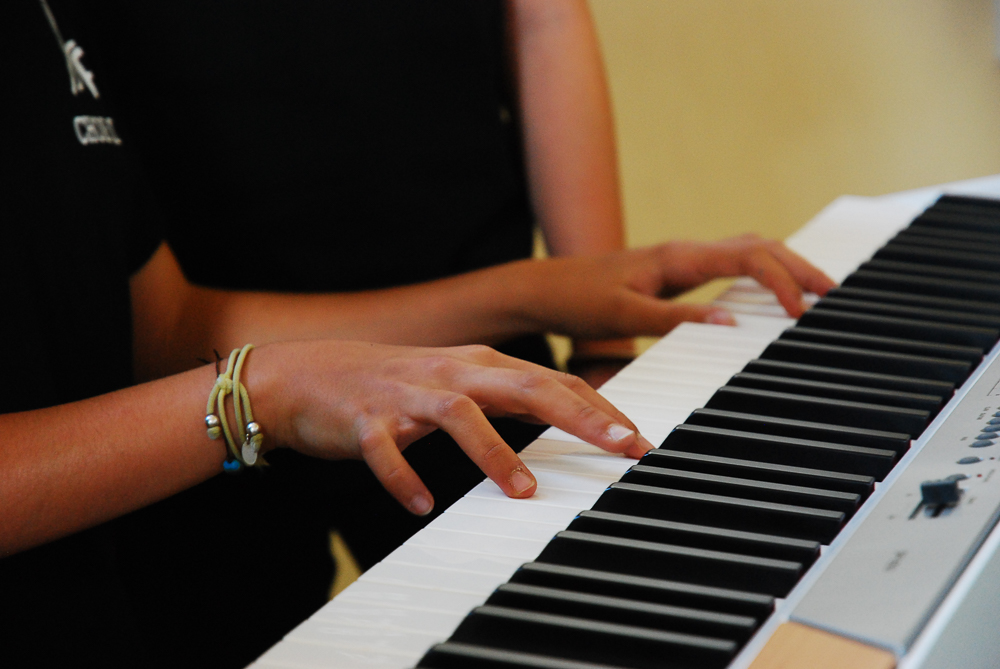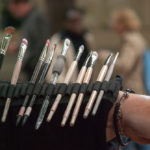My son introduced me to the film, The Music of Strangers, by Yo Yo Ma and the Silk Road Ensemble. In the beautiful trailer, a couple of sentences struck a chord:
“Art is about opening up to possibility. Possibility leads to hope. We all need hope”.
“There’s no East or West. It’s just a globe”.
“We don’t speak perfect English or perfect Chinese or perfect Persian. We speak perfect music language”.
“Everybody is afraid, but when you make a connection with another human being, you can turn fear into joy”.
I thought of What Expats Can Do, and realized that approaching music in our host countries, promoting their artists and encouraging musical encounters, could be something we expats could add to our list of positive actions to boost empathy and hope.
I went back to my experience abroad and realised that music has played a much more important role than I have ever envisaged.
In Guinea Bissau my husband worked on a project to raise AIDS awareness. In this he was helped by dozens of talented artists who produced a wealth of songs to spread messages of prevention.
In Congo I met the fabulous Tambours de Brazza, real ambassadors of Congolese music and traditions in the world.
In Honduras and Peru I learnt how to dance to Latin music rhythms.
The common denominator I see in all of these experiences is people – and an increased fluidity in communicating with them thanks to music.

all rights reserved © Cristina Baldan
It was only when I went to Palestine, however, that the full power of music showed itself in all its might.
At the beginning I was doubtful. When people told me that music can bring Palestinians and Israelis together, I replied that the problem is not about the two people being unable to communicate, but a political one, born from decisions taken up high, and falling on the people of this land like a guillotine blade.
After living in Jerusalem for almost five years, though, I came to realise that the effects of an inhuman policy are more far-reaching than what meets the eye, and that the mistrust, hatred and suspicion fostered by political actions has polluted the relationship between the two peoples. At that point I started seeing music as a powerful means to bring them back together on neutral ground – and music is indeed neutral.
It is maybe for this same reason that music and musical initiatives abound both in Israel and Palestine. And that there are so many good people who continue believing in teaching music to their children and youth, despite the fact that the development of any kind of creative space in Palestine is constantly hampered by the occupation.
I am talking about the world-renowned Barenboim-Said foundation, which was founded by two great men, the Argentinian pianist and orchestra conductor Daniel Barenboim and the Palestinian intellectual and writer Edward Said.
Or the Alkamanjati Project, created by Ramzi Aburedwan of the Amari Refugee Camp in Ramallah, West Bank, who has gone to great lengths to make music more accessible to Palestinian children, especially those living in refugee camps.
Or the El-Hakawati Theatre, the Edward Said Conservatory , the Church of Sainte Anne in the Old City of Jerusalem, and all the other institutions that strive to keep music alive in Palestine.
All these institutions and initiatives must be supported and encouraged, and not only in Palestine.
Wherever you are in the world, we invite you to think about how music can help increase empathy in communities and individuals, and what and how much you are doing in your host country in this respect. We look forward to hearing from you.
Claudia Landini
September 2016
 Previous Post
Previous Post Next Post
Next Post